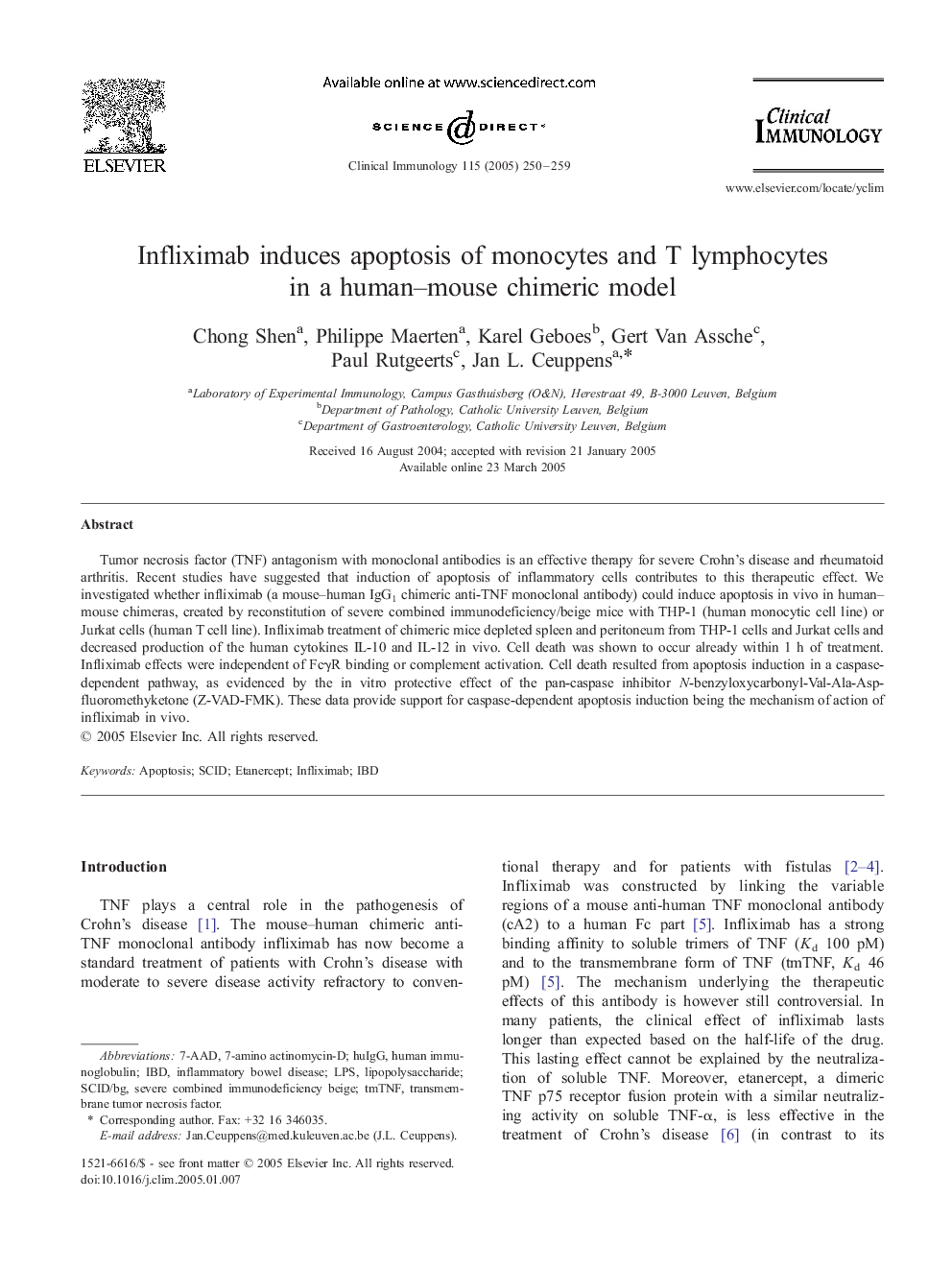| Article ID | Journal | Published Year | Pages | File Type |
|---|---|---|---|---|
| 9236695 | Clinical Immunology | 2005 | 10 Pages |
Abstract
Tumor necrosis factor (TNF) antagonism with monoclonal antibodies is an effective therapy for severe Crohn's disease and rheumatoid arthritis. Recent studies have suggested that induction of apoptosis of inflammatory cells contributes to this therapeutic effect. We investigated whether infliximab (a mouse-human IgG1 chimeric anti-TNF monoclonal antibody) could induce apoptosis in vivo in human-mouse chimeras, created by reconstitution of severe combined immunodeficiency/beige mice with THP-1 (human monocytic cell line) or Jurkat cells (human T cell line). Infliximab treatment of chimeric mice depleted spleen and peritoneum from THP-1 cells and Jurkat cells and decreased production of the human cytokines IL-10 and IL-12 in vivo. Cell death was shown to occur already within 1 h of treatment. Infliximab effects were independent of FcγR binding or complement activation. Cell death resulted from apoptosis induction in a caspase-dependent pathway, as evidenced by the in vitro protective effect of the pan-caspase inhibitor N-benzyloxycarbonyl-Val-Ala-Asp-fluoromethyketone (Z-VAD-FMK). These data provide support for caspase-dependent apoptosis induction being the mechanism of action of infliximab in vivo.
Keywords
Related Topics
Life Sciences
Immunology and Microbiology
Immunology
Authors
Chong Shen, Philippe Maerten, Karel Geboes, Gert Van Assche, Paul Rutgeerts, Jan L. Ceuppens,
